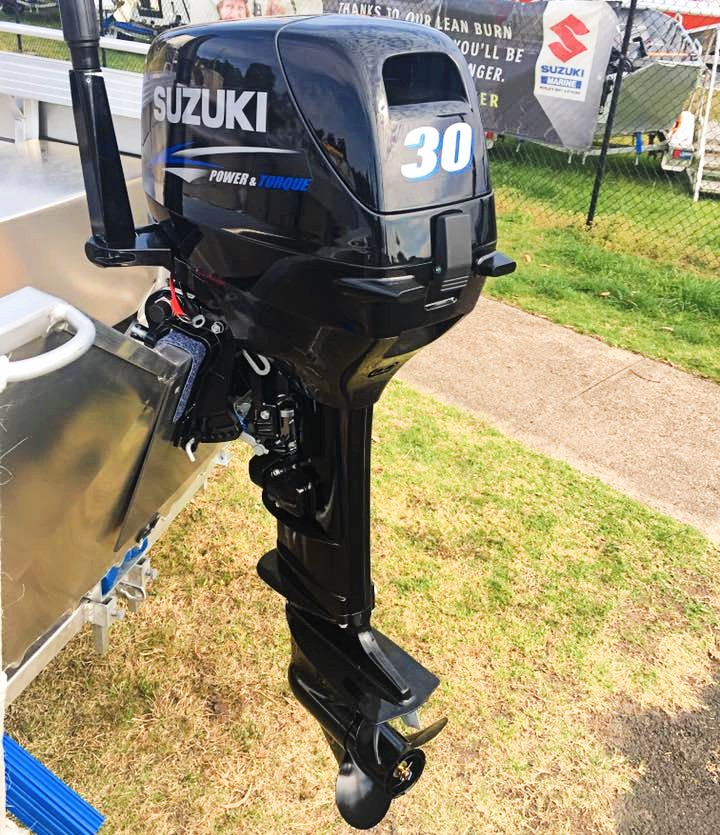
Boating is a wonderful pastime, but the cost of fuel can sometimes dampen the experience. However, with a few smart practices, you can enjoy your time on the water while conserving the fuel of your Suzuki engine. If you lower your fuel consumption, you’ll make fewer trips to the fuel dock and save money. We’ll help you explore helpful ways to save on boat fuel, letting you make the most of your marine adventures while being mindful of your wallet and the environment.
Efficient Boating Practices
How you operate your boat greatly impacts fuel consumption. Adopting efficient boating practices can help save fuel:
Smooth acceleration: Avoid rapid acceleration and sudden deceleration. Gradually increase speed and maintain a steady pace when cruising.
Plan routes: Plan your route efficiently to minimise unnecessary detours or zigzags. Avoid areas with strong currents or adverse weather conditions that can increase fuel consumption.
Trims and Tabs: Adjust your boat’s trim tabs and trim settings to reduce drag. Properly trimmed boats experience less resistance and burn less fuel.
Idle Speed: Reduce the throttle when moving at low speeds.
Take Notice of Those Smoke Signals
The colour of your diesel engine’s exhaust can indicate problems that reduce engine efficiency and increase fuel consumption. Here are the differences in the smoke colours and what this could indicate:
Black smoke: It shows an unburned or partially burned fuel. This means that the engine is overloaded, starved for combustion air, or has worn injectors.
Blue smoke: This happens when crankcase oil is burned in the engine’s combustion chambers due to worn rings, valve guides, or seals.
White smoke: This is a fog of very small fuel droplets due to poor quality of fuel, injector/valve timing problems burnt valves, or bad gaskets allowing coolant into the cylinders.
Weight Management
Excessive weight on your boat can impact its fuel efficiency. Here’s how to manage weight effectively:
Remove unnecessary gear. Clean your boat and get rid of all trash and unnecessary items that add weight to the boat. The more weight your boat carries, the less fuel it consumes. So, when you’re on a boating trip, only bring the essentials.
Remember to keep the fuel tank at a manageable level. Carrying too much fuel can also add unnecessary weight. Refuel as needed but avoid running on empty, as sediment in the tank can be drawn into the engine.
Reduce Speed
Boating at lower speeds consumed less fuel. Reducing your cruising speed slightly can make a substantial difference in fuel efficiency. Consider operating within the hull speed range, which is the maximum speed your boat can reach without causing excessive bow wave and resistance.
Maintain Your Engine
Proper engine maintenance is one of the most effective ways to save fuel. A well-maintained engine operates efficiently, using less fuel to generate power. Here are some things you can do to ensure you take care of your engine:
Regular Servicing: Follow the manufacturer’s maintenance schedule for your boat’s engine. For example, Mercury outboard servicing should be done in boat dealerships that are certified to do the job. Make sure to follow the manufacturer’s instructions on how to service you engine properly. Routine servicing includes changing oil, filters, and spark plugs, and inspecting fuel lines and connections.
Propeller and Hull: Ensure that the propeller and hull are clean and free of barnacles or marine growth. A fouled propeller or hull increases drag, forcing the engine to work harder and consume more fuel.
Check for Leaks: Regularly inspect your engine for fuel and oil leaks. Even small leaks can lead to significant fuel wastage over time.
Use Other Sources of Energy
Instead of idling your engine to charge batteries, appliances, and other electrical gadgets, consider using solar, wind, tidal power, or dockside power.